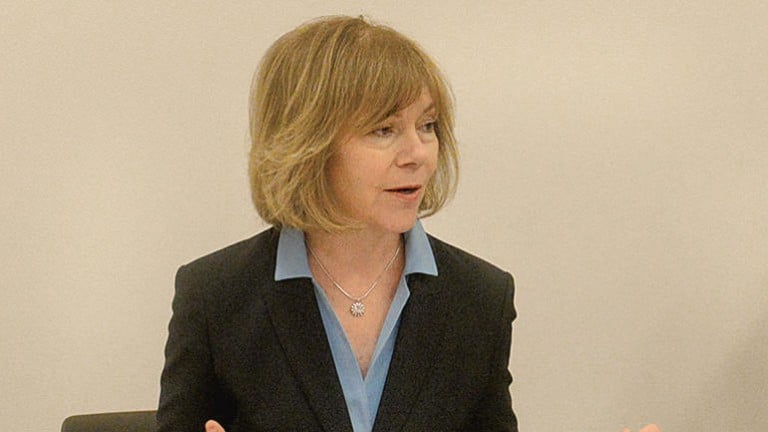WILLMAR—At a panel discussion Monday with Lt. Gov. Tina Smith, stories of local broadband woes crackled with a frustration that has become familiar.
Speaker after speaker described the shortcomings with their rural internet service—slow speeds, inadequate bandwidth and sometimes no service at all unless they drive into town to find a free wireless hotspot.
The broadband gap increasingly puts rural Minnesota at a competitive disadvantage, said Aaron Backman, executive director of the Kandiyohi County and City of Willmar Economic Development Commission. If rural businesses are to be economically sustained, the access to technology is crucial, Backman said. “They need broadband. They need fiber.”
The dialogue, hosted by Jennie-O Turkey Store, came in the midst of legislative debate over how much the state should invest in its border-to-border broadband access program, particularly for grants to bring services to areas of the state that are unserved or underserved.
Gov. Mark Dayton and Smith have proposed a $100 million appropriation to expand rural broadband access this year.
An allocation this size could leverage up to $100 million more in state and local resources for broadband expansion.
A bill making its way through the Minnesota House would provide substantially less — $40 million over two years, an amount some critics have called a drop in the bucket.
One person after another at Monday’s roundtable discussion testified to the need for better service.
It’s one of the busiest times of the year for people like Sam Romain of Haug Implement, yet Romain and one of his customers had to wait three hours last week to complete the download of precision ag data from the farm site.
“That was only the download,” Romain said.
Donna Boonstra, owner of an interior design business based at her rural home, said it can take hours to watch a 10-minute online professional education seminar.
“Sometimes I have to watch that dial go round and round. . . That gets very frustrating,” she said.
Technology is becoming increasingly critical for Jennie-O Turkey Store’s biosecurity program and for connecting the company’s network of farmers across the state, said Travis
Bonnema, information technology director.
Speakers said they worried that as software continues to advance, rural capacity will fall even farther behind, hampered by slow speeds and inadequate bandwidth.
“I think everyone in the room knows it’s important,” Bonnema said.
Although local leaders have done much to raise awareness of the needs and frustrations, it has revealed “how little power we have” to influence the level of service, said Jean Spaulding of Quam Construction.
“I think we’re making a lot of progress and a lot of momentum right now, but the costs are going up. Forty million is not enough,” she said.
Some in the audience said they feared rural Minnesota simply isn’t a priority.
“We’re not going to settle for ‘good enough,’ ” said Michelle Marotzke.
Representatives of CenturyLink, Charter Communications and Frontier Communications said they know there’s a need and that they are willing to leverage their own investment with state and federal funding.
Patrick Haggerty of CenturyLink offered a bit of good news to the room: With the help of the federal Connect America Fund, CenturyLink expects to bring internet service to about 430 households in Kandiyohi County by the end of the year.
State and federal grants are one of the key pieces in helping service providers reach high-cost remote areas of the state, Haggerty said. “It is a very critical tool in our state to fill those gaps.”
Rep. Dave Baker, R-Willmar, defended the House bill, of which he is a co-author.
One of the goals is to reach rural households and businesses that do not yet have high-speed internet, he told the group. “We’ve got to focus on the folks who have nothing,” he said.
At the same time, Baker acknowledged the challenge of meeting all the needs.
“We know we can do better,” he said.
The lieutenant governor said after the meeting that the message came through clearly: $40 million isn’t enough to close Kandiyohi County’s broadband gap.
“I really think that we need to be much closer to the governor’s goal,” she said.
West Central Tribune by Anne Polta

